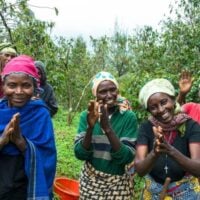Deadline: 3-Apr-23
The United Nations Educational, Scientific and Cultural Organization (UNESCO) is inviting expressions of interest for the baseline survey on the state of the informal economy in the cultural and creative sectors in Zimbabwe.
The Government, through the National Arts Council of Zimbabwe (NACZ), set up the Athletes and Arts Relief Fund (AARF) to support artists and athletes whose activities and income stream had been negatively affected by the COVID-19 pandemic. However, a more long-term response would be needed to address the systemic decent work deficits brought about informality in these sectors. Despite anecdotal evidence on the prevalence of informality in the sector, gaps persist in:
- the understanding of the scope, size and patterns of informality;
- the differences in various sub-sectors in the overall cultural and creative industries;
- the legal and policy framework applicable to the sectors;
- the various types of stakeholders in the sectors and their degree of vulnerability; and
- the different components of decent work deficits within the informal economy (social protection, labour rights, organizations, skills etc.)
Objectives
- The objective of the study is to:
- assess the extent, characteristics and nature of the informal economy in the cultural and creative sectors, taking into account the different sub-sectoral differences (live performance, recorded music or video; etc)
- review the legal and regulatory frameworks applicable to the various sub-sectors, including those the job classification and salary structure, the main drivers of informality, as well as incentives to formalization, including the working conditions and social protection mechanisms or entitlements applicable to workers in these sub-sectors.
- Map out the ecosystem of representative organizations in the different sub-sectors, discussing challenges met by these latter in creating an enabling environment for workers and enterprises in the sector, as well as their representatives (trade unions and employers organizations), in view of establishing, for example, national employment councils
- Finally, the study will propose policy approaches to guide relevant stakeholders (Ministry of Ministry of Public Service, Labour and Social Welfare; the Ministry of Youth, Sports, Arts and Recreation and relevant sectoral employers’ organizations and workers’ organizations, and relevant civil society organizations) to reduce decent work deficits in the sector and facilitate its transition to formality.
Scope
- For the purposes of this study, the research will cover the following sub-sectors: visual arts, live performance; writing and publishing; motion pictures, video, and television programme production; video games; sound recording and music publishing; programming and broadcasting; crafts and design; and fashion.
- Workers in the sector include both artists (such as actors, musicians, dancers) and culture professionals (such as audiovisual and sound engineers, as well as other professionals employed in support of the entertainment or artistic activity).
Tasks
- The consultant(s) will:
- Review existing literature, documentation, reports, providing an overview of the informal economy in the various subsectors
- Provide an inventory of what is in place and what are the gaps within the legal and policy frameworks
- Analyse and document the working conditions of informal economy actors including earnings/salary structure, decent working time, social protection, safe working environment
- assess the extent, characteristics, and nature of the informal economy in the sector, with a view to also identify gender-specific patterns and issues
- map out the ecosystem of representative organizations in the sub-sectors, analysing the enabling environment for employers and workers to exercise their right to organize and to bargain collectively and to participate in social dialogue in the transition to the formal economy
- propose policy approaches
- prepare a presentation to facilitate the discussion in a future validation workshop
- It is required that the consultant pay particular attention to gender issues and integrate them throughout the research process.
Outputs
- A detailed research proposal, including a description of survey design and overall methodology, budget, survey implementation, and research questions
- A research report in English with key findings including operational recommendations and policy approaches
- A presentation on the findings
Consultant(s)’ Selection Criteria
- Education
- University Degree at master’s Level or PhD
- General qualifications
- Have a minimum of 10 years of professional work experience in addressing labour issues, informal economy strategies; undertaking socio-economic studies, research in employment/working conditions, specific experience in the cultural and creative sectors an advantage
- Specific Experiences
- Proven experience in conducting/implementing studies and surveys related to informal economy and/or in the cultural and creative sectors
- Clear understanding and familiarity with methods of analysis and survey, including design of questionnaires
- Key understanding of emerging issues regarding the informal economy; as well as broad understanding of the cultural and creative sectors
- Previous work with ILO, UNESCO, National Arts Council of Zimbabwe (NACZ) and/or UN is an advantage.
- Communication
- Knowledge of English, and one of the official languages in Zimbabwe is an advantage
For more information, visit UNESCO.


















![Call for Applications: “Voices in Motion” Program [Sri Lanka] - fundsforNGOs Call for Applications: “Voices in Motion” Program [Sri Lanka]](https://www2.fundsforngos.org/wp-content/uploads/2023/04/dance-200x200.jpg)






















